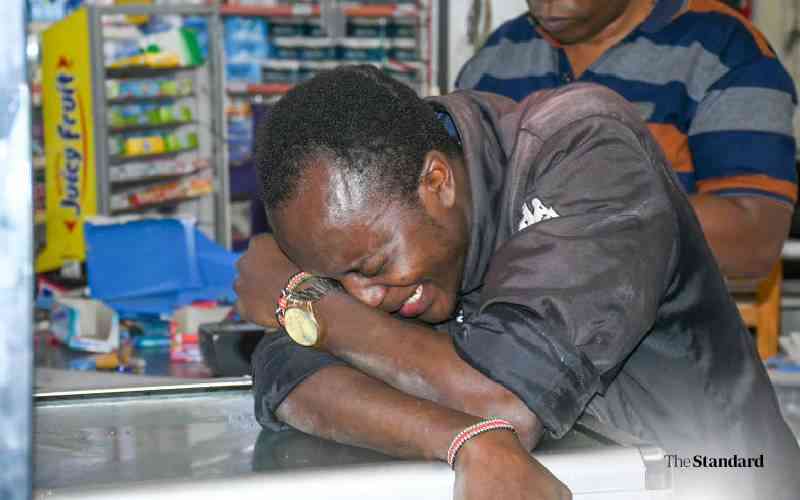On Tuesday morning, Faith Binzali walked into St Joseph the Worker Catholic Health Centre in Kangemi.
At 27, she was glowing with the anticipation of motherhood, ready to deliver her first child. But by nightfall, she was gone.
The cries of a newborn after nine months of waiting should have been the song of joy for her husband, Alex Ndung’u, and her parents.
But instead, it turned into a nightmare of unanswered questions and blood-stained memories after Binzali died on the operating table while undergoing a caesarean section.
The family says Binzali endured long hours of labour before being wheeled into the operating theatre around 5pm, a decision they claim was made without their consent.
“She was in good health and had no signs of complications,” said the husband, accusing the hospital of negligence.
“She laboured for a long time without proper medical attention. They told us they were delaying the C-section because the second medic wasn’t available.”
According to the family, the hospital informed them of the death at around 7.30pm, about two hours after she was taken to theatre.
“I was called around 6pm and arrived when my daughter had been taken to theatre without consent from me or someone I had assigned to act on my behalf,” claimed the father, Benard Babu.
“I questioned but the nurses held me back. I calmed though my heart raced. I wasn’t at peace. I discerned something was not right.”
Half an hour later, a nurse approached with what the family thought was good news—that the baby had been delivered safely.
“They told us to be patient, that the mother would wake up soon,” said Babu.
He said the nurses approached them at about 6.30pm to “receive a bundle of joy”. It was at this point, he said, that they learnt everything had gone wrong.
“The medics locked the theatre room and disappeared through the back door. I immediately broke in and found the body soaked in blood,” said Ndung’u.
Stay informed. Subscribe to our newsletter
An autopsy pointed the finger at what transpired in the theatre.
“The cause of death is lack of oxygen, what we call hypoxia, which happened in theatre and this could be a complication of the anaesthesia, which the patient was given in theatre,” said government pathologist Joseph Ndung’u, who led the post-mortem.
Dr Ndung’u said they had taken body samples for further analysis at the Government Chemist to establish what kind of medication she was given.
Dagoreti Sub-County Criminal Investigations Officer, Adan Mbagaja, on Wednesday said the matter is under investigation.
According to Dr Simon Kigondu, the most common cause of maternal death is postpartum haemorrhage (PPH), where medics fail to stop the bleeding.
“If there was blood on standby for transfusion, they would have prevented the death under what we call the massive bleeding protocol.”
“Whenever there is a maternal death, the hospital needs to report the matter to the Nairobi County medical team after doing an internal MPDSR (maternal and perinatal death review) within 24 hours. This information also needs to be sent to the Nairobi County team within 72 hours.”
In Kenya, between 3,600 and 5,000 women die every year during childbirth, with PPH accounting for up to 60 per cent of maternal mortality.
According to a USAID report on maternal mortality, Kenya ranks fourth in Africa, recording 594 deaths per 100,000 live births. The United Nations’ Sustainable Development Goals aim to reduce the global maternal mortality ratio to less than 70 per 100,000 live births by 2030.
Yesterday, St Joseph the Worker was operating normally. Our request to speak to the administration proved futile.
The incident has left the family in despair, even as they demand answers from the hospital management.
“All I want is that they (hospital) give us answers,” said the father. “What happened to my first-born daughter?”
The husband, who described Binzali as his “love-line for the last three years”, will take care of their first child alone.






















